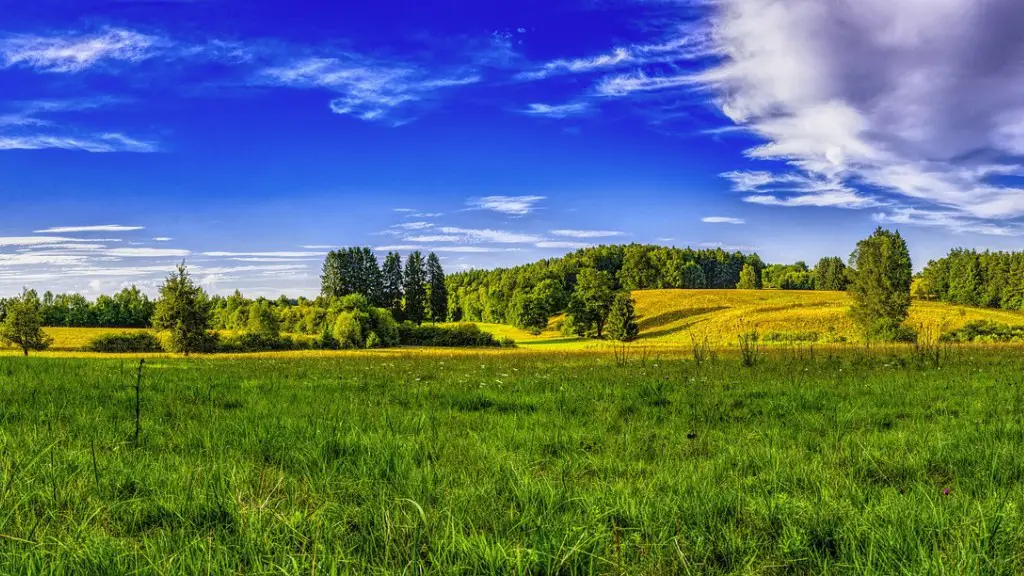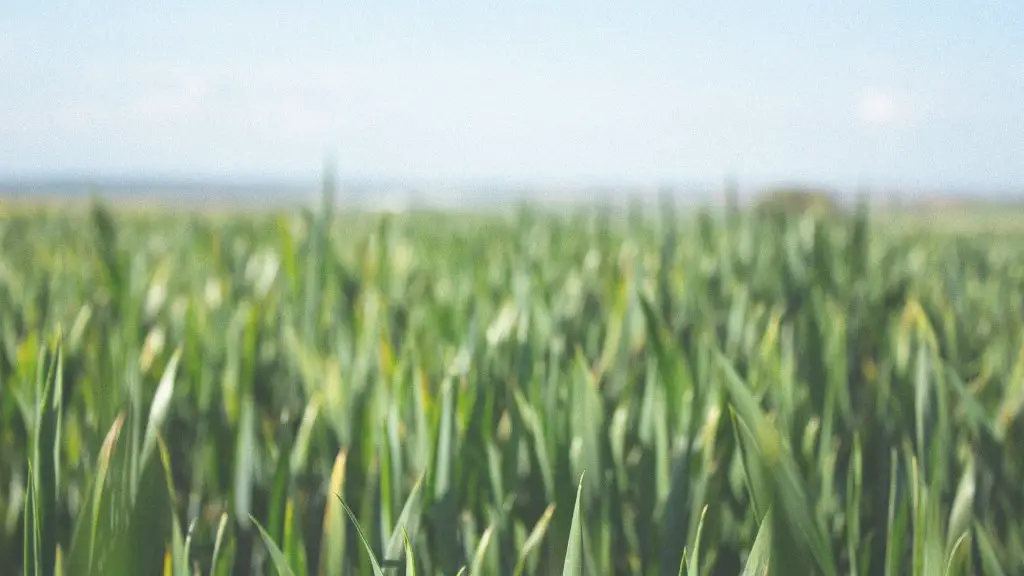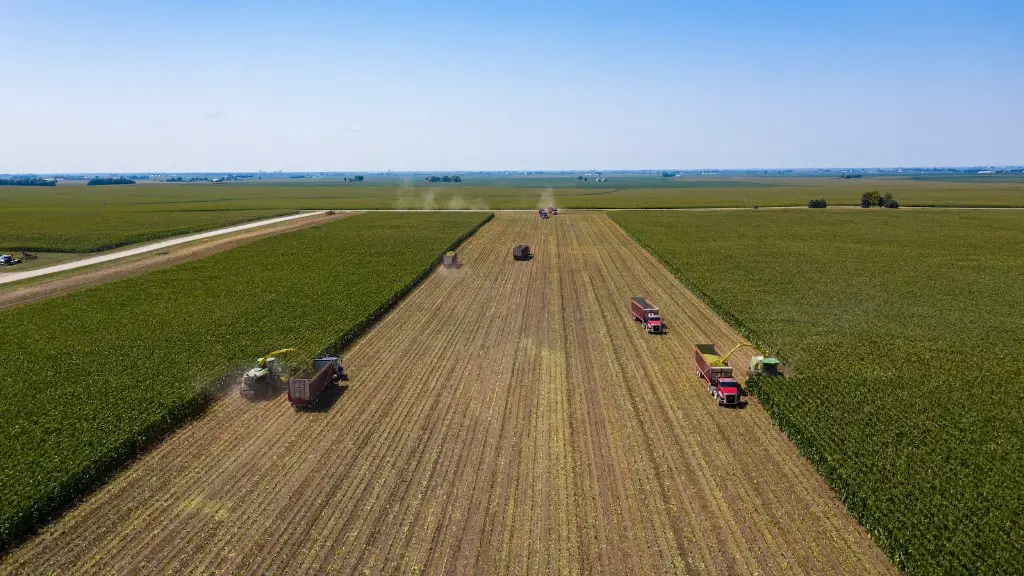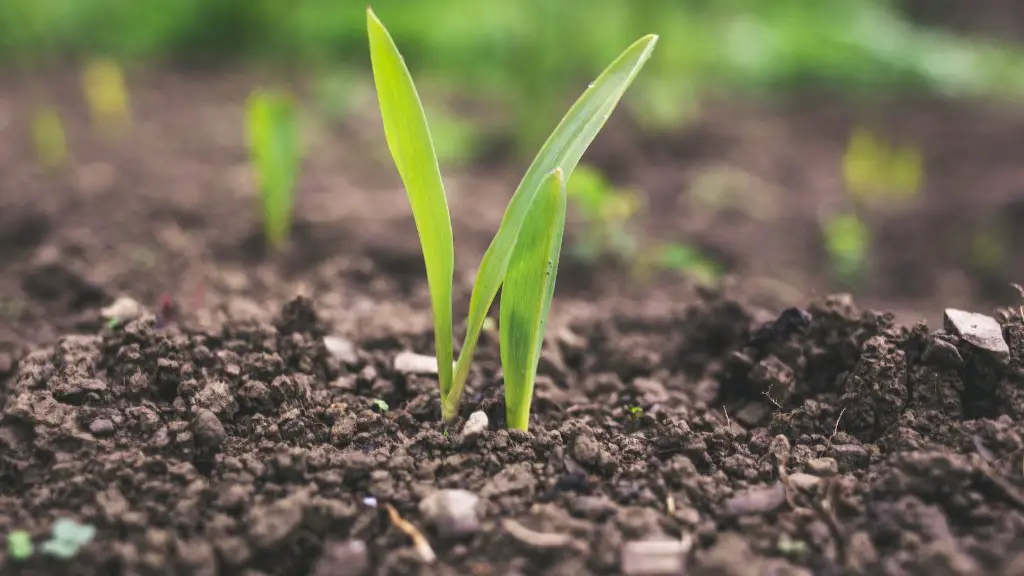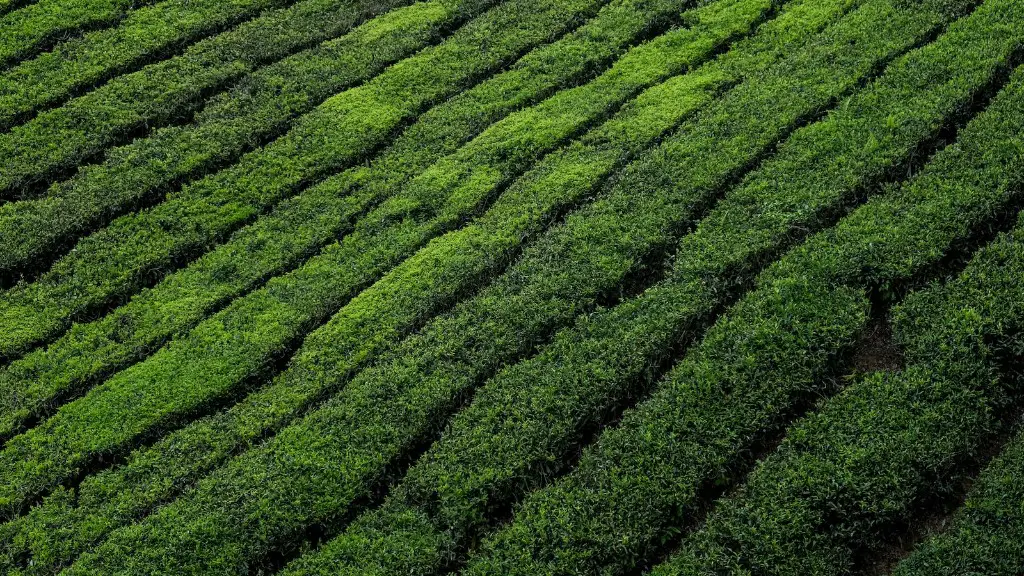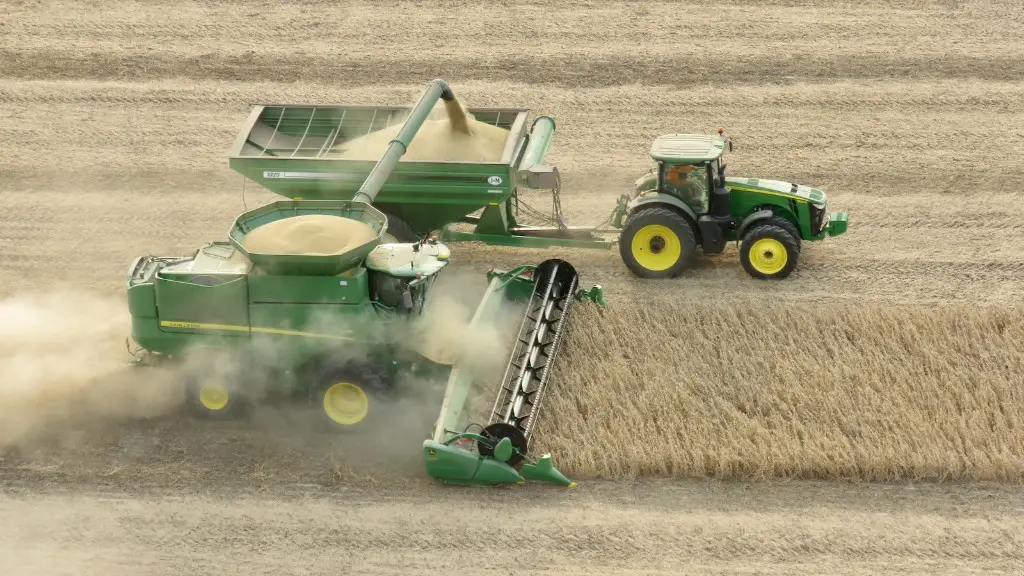Deforestation can have a negative impact on agriculture. When trees are removed from an area, the soil can become less fertile and less able to support crops. Additionally, deforestation can lead to increased erosion and can reduce the amount of water available for irrigation.
Deforestation can have a negative impact on agriculture. When trees are removed from an area, the soil can become less fertile and less able to support crops. Deforestation can also lead to a loss of topsoil, which is the layer of soil that is most fertile and contains the most nutrients.
Is deforestation an agricultural issue?
Animal agriculture is one of the leading drivers of deforestation and habitat destruction. It is also responsible for approximately 60% of global greenhouse gas emissions. This is a significant problem that needs to be addressed in order to protect our environment.
The study found that agriculture remains the main driver of deforestation in all regions except for Europe, where urban and infrastructure development have a higher impact. Conversion to cropland dominates forest loss in Africa and Asia, with over 75 percent of the total forest area lost being converted to cropland.
Why is agriculture the biggest driver of deforestation
Beef production is the leading driver of deforestation in the world’s tropical forests. The forest conversion it generates more than doubles that generated by the production of soy, palm oil, and wood products (the second, third, and fourth biggest drivers) combined.
The three-quarters of tropical deforestation that is driven by agriculture is a key environmental issue. Beef production is responsible for 41% of this deforestation, while palm oil and soybeans account for another 18%. Logging for paper and wood across the tropics is also a major contributor, accounting for 13% of deforestation. These industries are particularly damaging in a few key countries.
What is an example of deforestation in agriculture?
Slash-and-burn agriculture is a major contributor to deforestation in the tropics. With this agricultural method, farmers burn large swaths of forest, allowing the ash to fertilize the land for crops. The land is only fertile for a few years, however, after which the farmers move on to repeat the process elsewhere.
The new study published on 8 September in the leading journal Science finds that between 90% and 99% of all deforestation in the tropics is driven directly or indirectly by agriculture. Yet, only half to two-thirds of this results in the expansion of active agricultural production on the deforested land. This means that a large proportion of tropical deforestation is happening without any direct benefit to agricultural production. The study highlights the need for better policies and practices to address this issue.
What are 4 major effects of deforestation?
Deforestation is a major environmental concern because it can lead to the loss of biodiversity, damage to natural habitats, and disruptions in the water cycle. Additionally, deforestation contributes to climate change and global warming.
Deforestation has a lot of negative effects that are often overlooked. Here are 10 negative effects of deforestation:
1. Deforestation harms biomass and worsens climate change
2. Deforestation makes air pollution worse
3. Deforestation increases the risk for more pandemics
4. Deforestation threatens the creation of medicines
5. Deforestation leads to greater soil erosion
6. Deforestation reduces the amount of carbon sequestered
7. Deforestation increases greenhouse gas emissions
8. Deforestation decreases water quality
9. Deforestation alters local climates
10. Deforestation creates refugees
How does deforestation cause fewer crops
Deforestation can lead to a number of problems, one of which is the lack of water in the soil. This is caused by the lack of trees to return water to the atmosphere. This can then lead to drier soil and the inability to grow crops.
Deforestation is the conversion of a forested area to land that is not forested. Deforestation can occur through natural causes such as wildfire and insect infestation, but deforestation is typically caused by humans.
The main cause of deforestation is the clearing of land for agriculture. Agriculture is a primary human need, and as the world population continues to grow, more land is needed to produce food. Other causes of deforestation include logging, mining, and urbanization.
Deforestation has many negative consequences. It can lead to social conflict, as people who rely on the forest for their livelihoods are displaced. Deforestation also causes the extinction of plants and animals, as well as climate change.
What is the biggest impact of deforestation?
Trees play a critical role in mitigating climate change by absorbing and storing carbon dioxide. If forests are cleared or damaged, they release carbon dioxide and other greenhouse gases into the atmosphere, exacerbating climate change. Forest loss and damage is responsible for around 10% of global warming, so it’s essential that we stop deforestation if we want tostand a chance of mitigating the climate crisis.
Deforestation can have a number of negative impacts on the surrounding environment, including loss of ecosystem services such as pollination. This can ultimately lead to a reduction in fruit and vegetable production and consumption.
How can we solve deforestation in agriculture
By making responsible choices when it comes to our consumption, we can all play a part in protecting forests. Avoiding single-use packaging, eating sustainable food, and choosing recycled or responsibly-produced wood products are all great ways to help out. Let’s make our voices heard and make a difference for forests, nature, and people!
Agroforestry can help to connect forest fragments and provide a habitat for migratory species. On-farm trees can provide a source of food and shelter for these animals, as well as help to control soil erosion and protect against pests and diseases. In addition, agroforestry can help to improve water and air quality, and provide a source of fuelwood and timber.
What are 10 facts about deforestation?
Deforestation is a huge problem that we are facing today. Every year, we lose around 10 million hectares of forest. This contributes to about 48 billion tonnes of carbon dioxide a year. Beef is responsible for 41% of global deforestation. Chocolate and biscuits are also major contributors to deforestation. This is a huge problem that we need to address urgently.
Deforestation is the clear-cutting of trees in an area where forest once thrived. Deforestation can refer to the natural loss of trees, as well as the potential destruction of trees due to the practices of people. When trees are cut down, they no longer provide homes and shelter for animals or birds. In addition, cutting trees affects the water cycle, as trees help to regulate the flow of water in an ecosystem. Too much water can lead to flooding, while too little water can cause fires. Deforestation also causes an increase in carbon dioxide, which contributes to global warming.
Conclusion
Deforestation can have a significant impact on agriculture. The loss of trees can lead to soil erosion, which can reduce the amount of land available for farming. Deforestation can also lead to a decline in the quality of the soil, as well as a reduction in the amount of rainfall.
Deforestation can have a significant impact on local agricultural production. When trees are removed from an area, the resulting loss of vegetation can lead to soil erosion and decreased soil fertility. This can make it difficult for farmers to grow crops and can lead to a decline in yield. In addition, deforestation can also lead to a decrease in water availability, as trees help to regulate the local water cycle. This can further impact agricultural production and lead to a decrease in crop yields.
